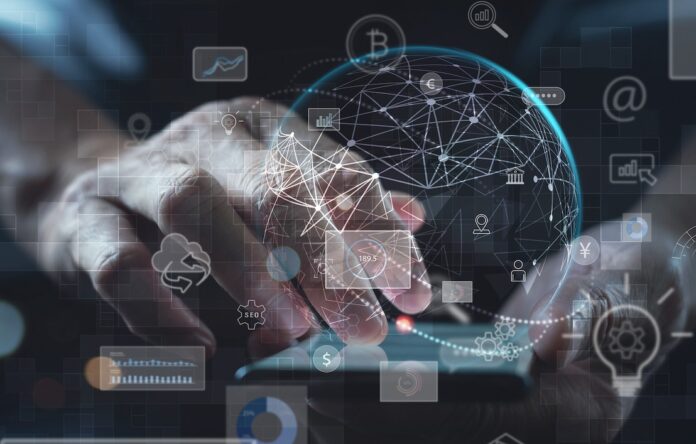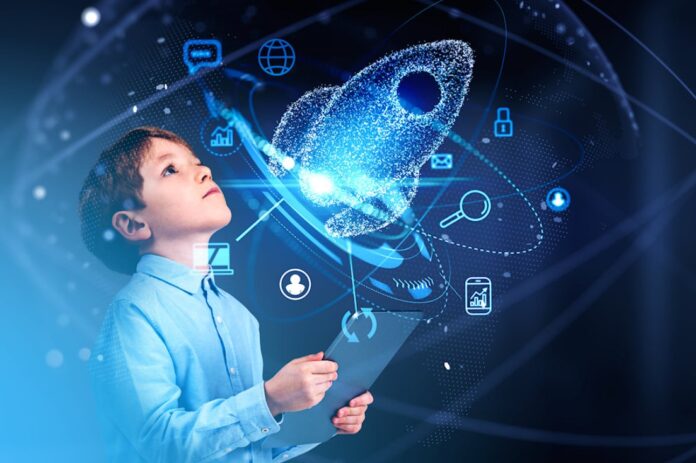As technology continues to advance by leaps and bounds, online education has become a powerful tool for delivering accessible and effective educational opportunities to a global audience.
Adaptive learning and personalization in community learning platform education are key concepts in transforming the way people access knowledge and develop their skills.
Data collection as a learning process
Data collection is the critical first step in the adaptive learning process. Information is gathered from a variety of sources, such as initial questionnaires, diagnostic test results, online interactions, and other relevant indicators of student performance.
The data collected includes not only demographic information, but also the time students spend on specific tasks, responses to test questions, areas where they tend to make errors, and much more.
The nature of this data can vary depending on the platform and the specific approach to adaptive learning. Some solutions use online behavioral data, such as time spent reading or interacting with course content, while others rely on data from formal assessments.
The use of Data Analytics and Intelligent Algorithms

Once the data is collected, intelligent algorithms go into action. These algorithms use advanced data analysis techniques, such as machine learning and artificial intelligence, to assess the performance and characteristics of each student.
The analysis is multifaceted and can include identifying learning patterns, detecting knowledge gaps, and estimating a student’s ability to understand specific concepts.
One of the most powerful features of adaptive learning algorithms is their ability to adapt and learn over time.
As students interact more with the system, the algorithms can refine their models and predictions, leading to continuous and more accurate personalization. Thus, students can find answers to your questions more quickly and efficiently.
Personalization of Content and Teaching Methodology
With the information gathered and data analysis in place, adaptive learning can personalize the learning experience for each learner. This includes adjusting course content, assignments and teaching methodology.
For example, if a learner shows a strong mastery of a particular topic, the system can quickly advance that topic by offering more advanced or challenging content.
On the other hand, if a student is struggling with a concept, the system can provide reinforcement material, additional examples, and extra practice to address their specific needs.
Continuous Assessment and Feedback
Adaptive learning doesn’t stop at initial customization.
As students progress in their learning, the system continues to collect data and adjust content to maintain challenge and relevance. This involves continuous assessment of learner progress and immediate feedback.
Feedback plays a crucial role in the adaptive learning process. Students receive instant feedback on their performance, allowing them to correct errors and improve their understanding of concepts.
In addition, educators can access detailed data on each student’s progress, allowing them to offer additional support when needed.
Advantages of Adaptive Learning in Online Education

In addition to the advantages mentioned above, adaptive learning offers additional benefits that are worth exploring in detail.
Improved Knowledge Retention
Content customization and teaching methodology are designed to improve long-term knowledge retention. Students are more likely to remember and apply what they learn.
Reduced Stress and Anxiety
By eliminating the pressure to keep up with an even pace of learning, adaptive learning can reduce the stress and anxiety that often accompany traditional education.
Problem Solving Skills Development
By facing challenges tailored to their needs, students can develop problem-solving and critical thinking skills more effectively.
Increased Engagement and Motivation
Adaptive learning systems can include elements of gamification and rewards, which can increase student motivation and engagement.
Facilitating Diversity of Learning Styles
Learners have different learning styles, and adaptive learning can accommodate these styles, whether visual, auditory or kinesthetic.
Common Challenges and Ethical Considerations

Despite its advantages, adaptive learning also poses challenges and ethical considerations that must be carefully addressed.
Privacy and Data Protection
The collection of personal student data raises legitimate privacy and data protection concerns. Educational institutions and technology providers must ensure that privacy regulations are respected and student data is protected.
Educational Equity
If not adequately addressed, adaptive learning solutions could exacerbate educational inequities, as not all students have equal access to high-quality technology.
Algorithmic Bias
Adaptive learning algorithms can introduce bias if not properly trained. This could lead to biased or unfair personalization of education.
Technology Dependency
There is a risk that students become overly dependent on technology and lose the ability to learn autonomously.
The Transformational Impact on Students and Educators
The impact of adaptive learning on students and educators is profound and multifaceted.
- Empowered Learning: Students feel more empowered and responsible for their own learning when they have the ability to personalize their experience.
- Improved Self-Esteem: As students overcome obstacles and achieve, their self-esteem and self-confidence can increase.
- Preparing for the Future: Adaptive learning can prepare students for an ever-changing world where adaptability and continuous learning are essential.
- Focus on Effective Teaching: Educators can focus on providing individualized, personalized support to students who need it rather than delivering uniform instruction.
- Data for Decision Making: Educators can use detailed data on student progress to make informed decisions about how to improve their teaching methods.
- Collaboration with Technology: Rather than viewing technology as a threat, educators can collaborate with adaptive learning systems to enhance the educational experience.
Emerging Perspectives and Trends into the Future

Adaptive learning continues to evolve and adapt as technology advances. Some of the emerging trends and perspectives in this field include:
Enhanced Artificial Intelligence.
The integration of advanced artificial intelligence will enable even more accurate and effective personalization in adaptive learning.
Virtual and Augmented Reality
Virtual and augmented reality can deliver highly immersive and personalized learning experiences.
Blockchain in Education
Blockchain technology can be used to ensure the authenticity of educational credentials and facilitate the transfer of credits between institutions.
Adaptive Learning in Job Training.
Adaptive learning will extend beyond formal education and will increasingly be applied in job training and professional development.
Conclusion

Adaptive learning and personalization in online education are shaping a new era of education. They are democratizing access to knowledge and providing students with the opportunity to learn in more effective and motivating ways.
Despite the challenges and ethical considerations it presents, adaptive learning promises an exciting and transformative future in which education is truly accessible to all.
As we continue to explore and harness the possibilities of this technology, we are paving the way for a more educated society prepared for the challenges of the future.
Soon no one will wonder who wins in the distance learning vs. online learning battle. The world will be increasingly connected.








